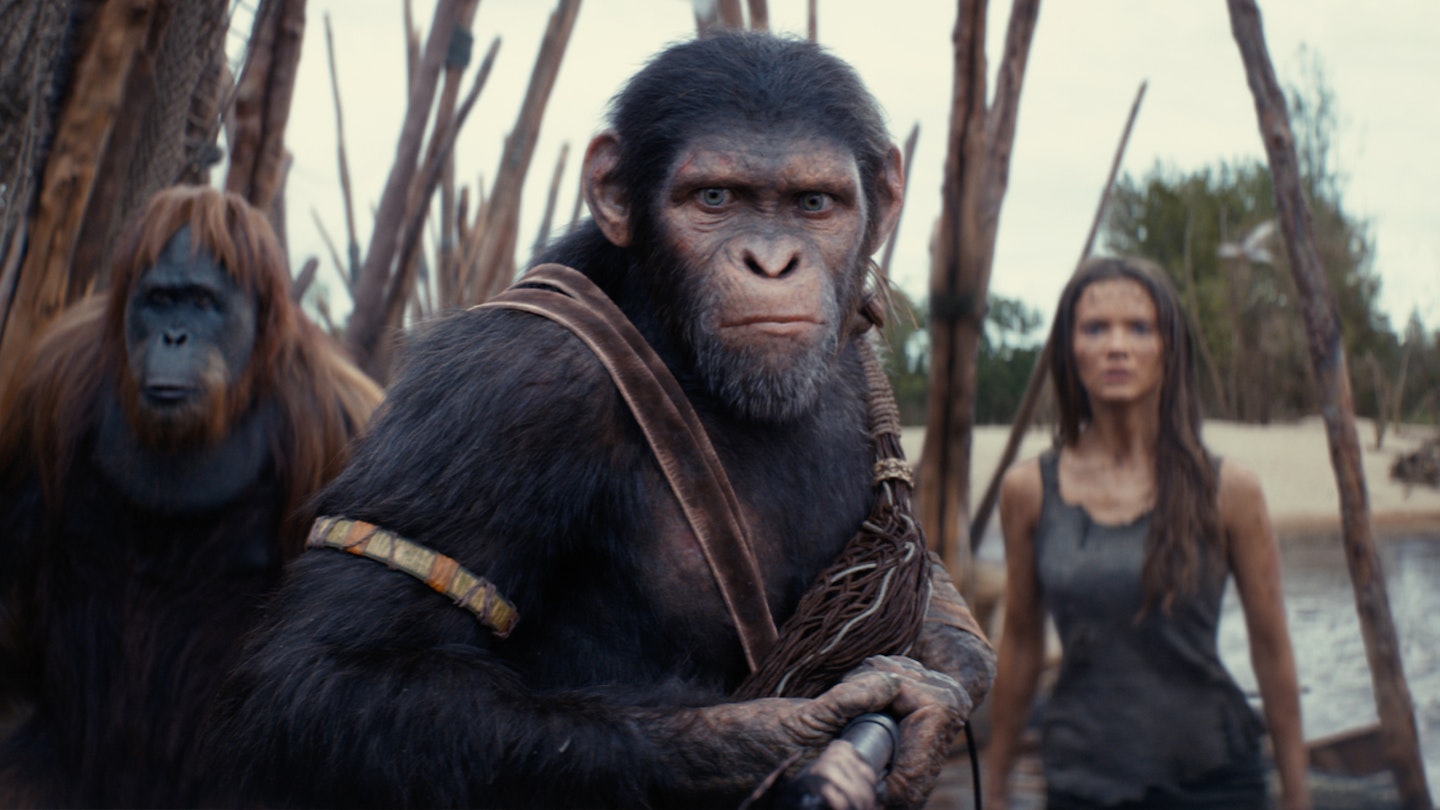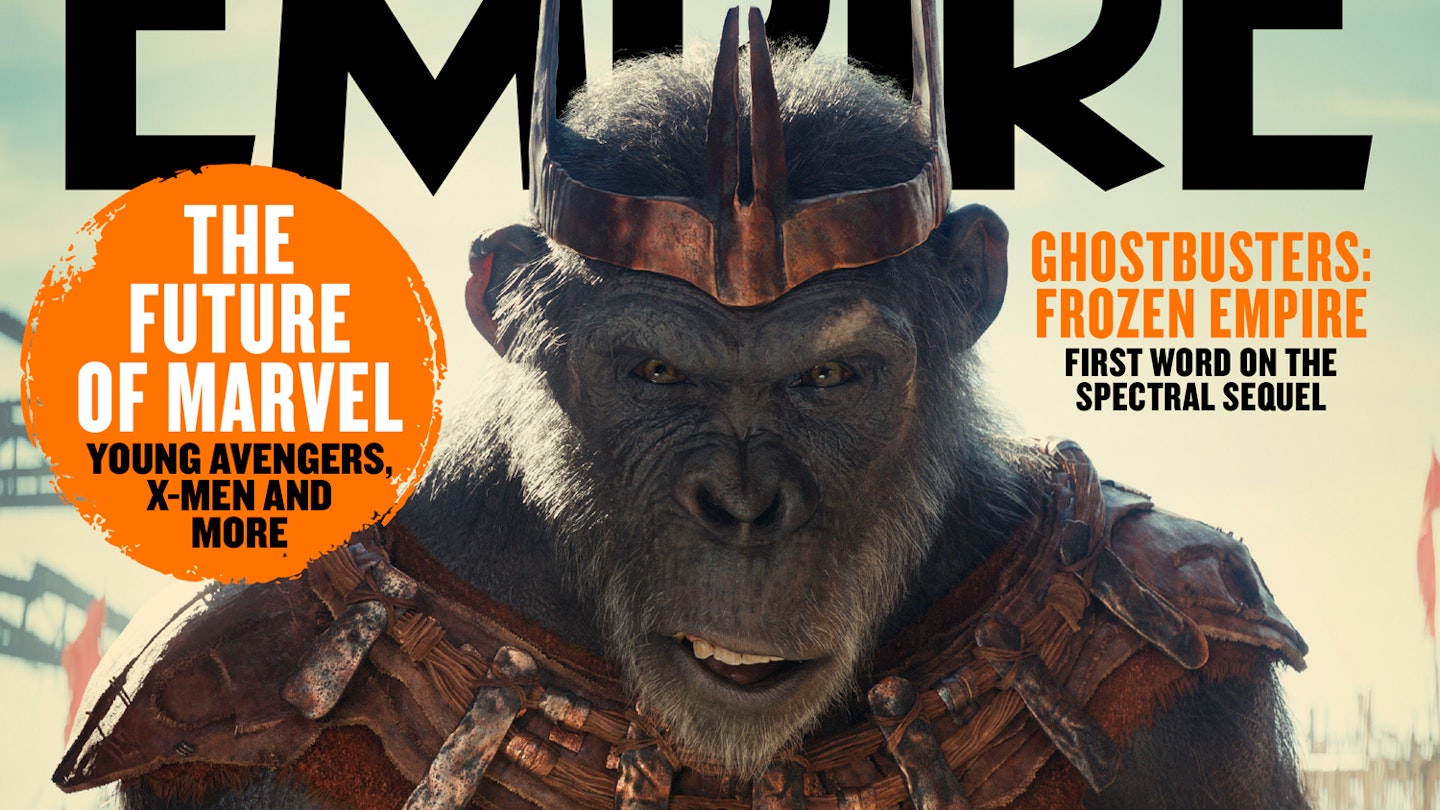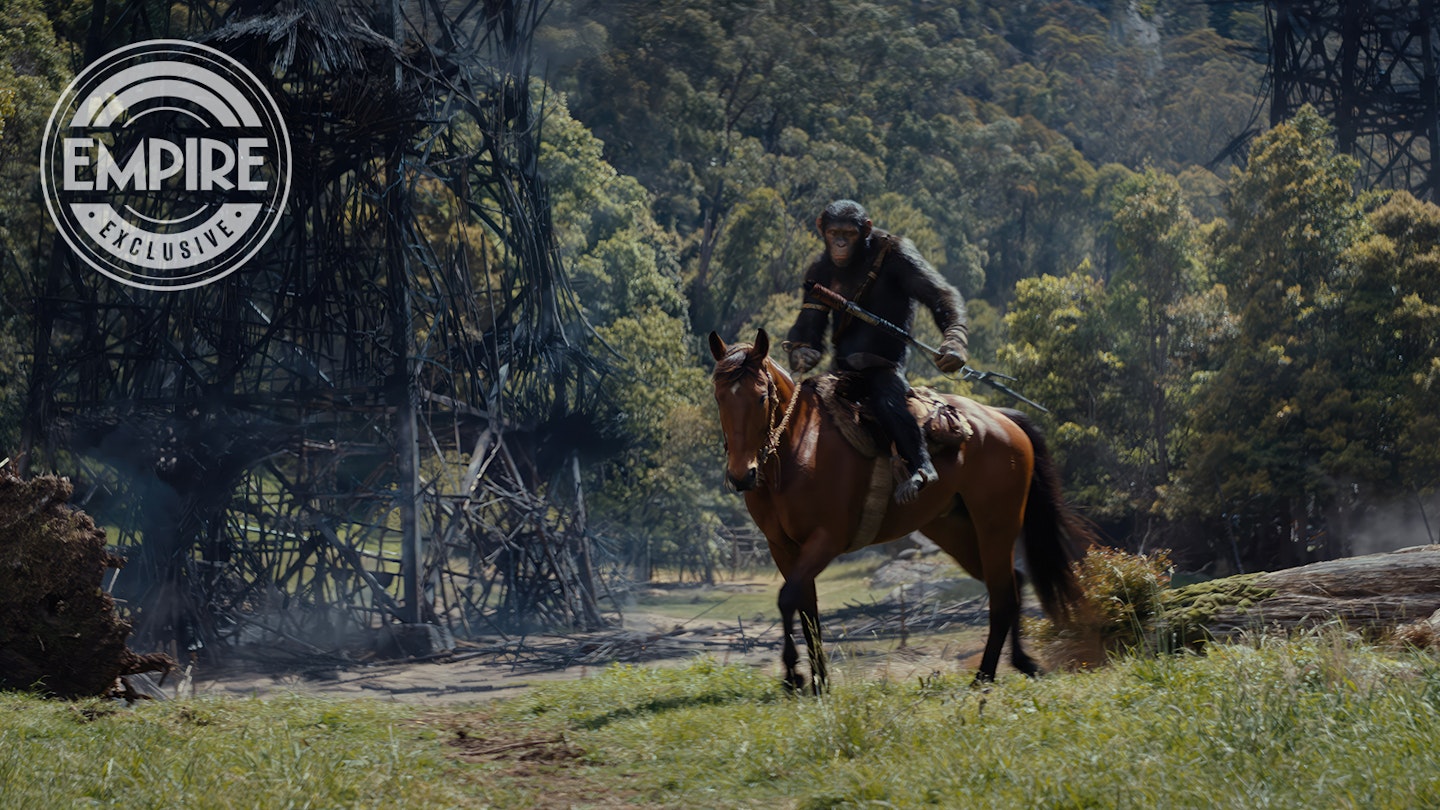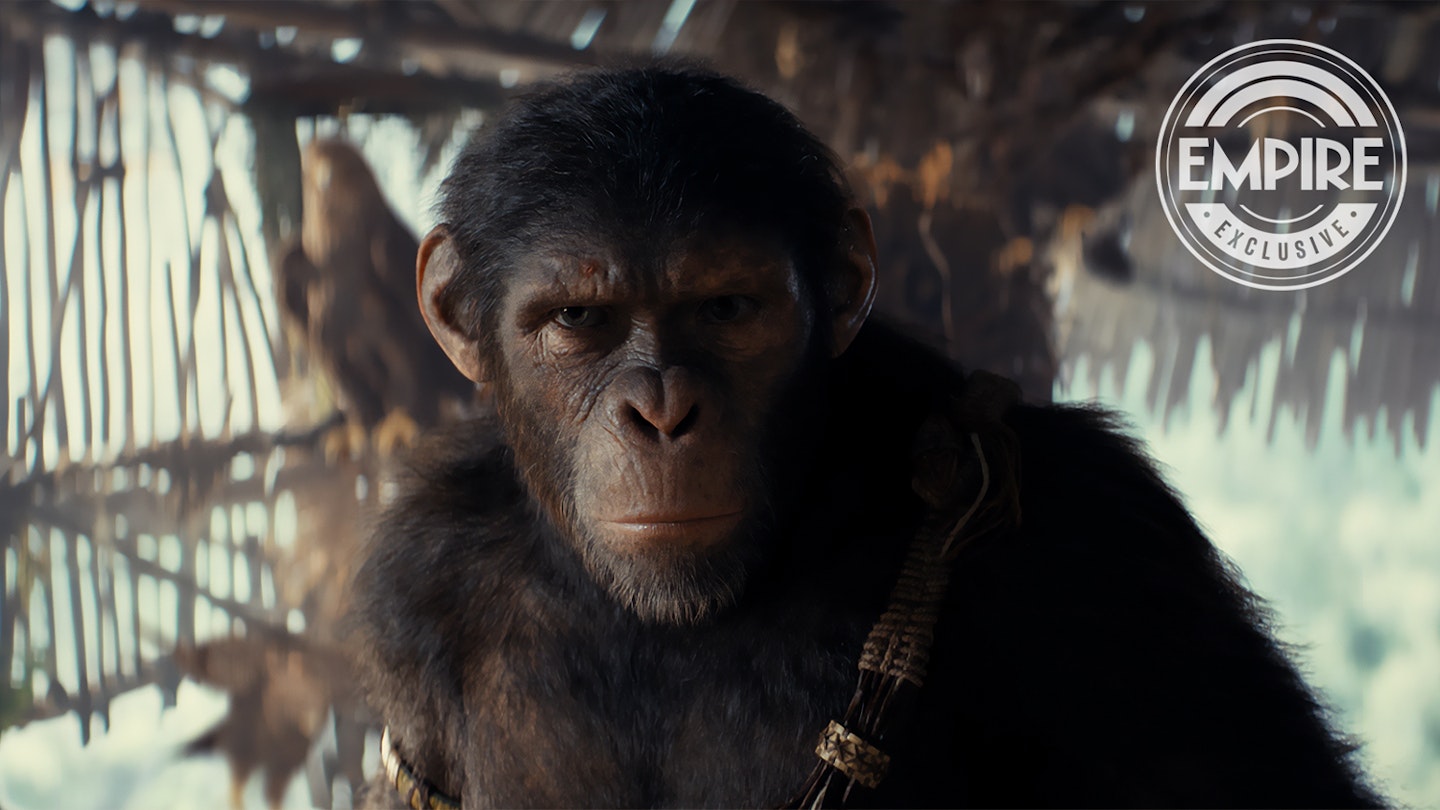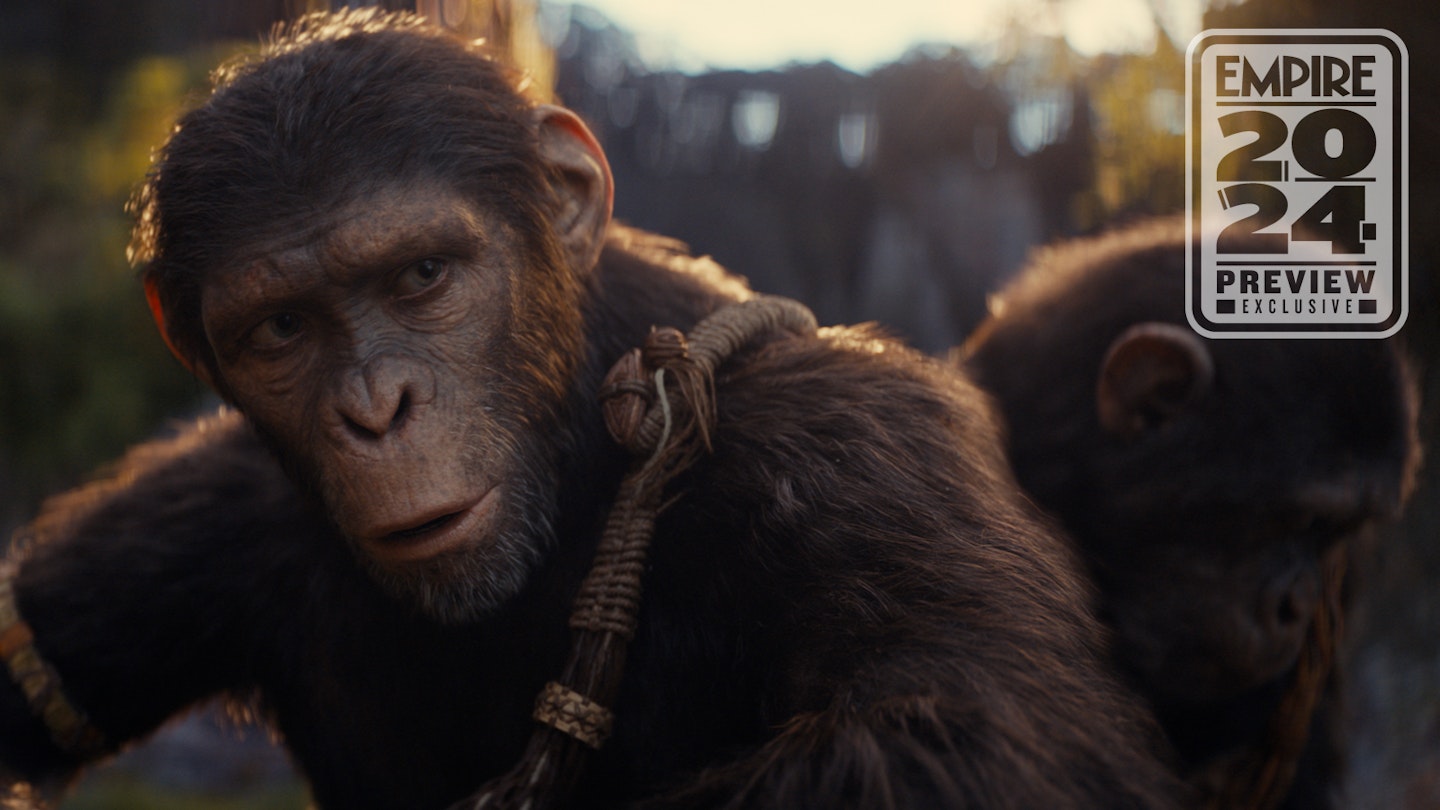It may be hard to get excited about a sequel trilogy to a prequel trilogy to five original films (not even counting the failed reboot). But the good news about this latest simian effort is that it drills into character and culture to ground its story, and has a bit where two apes on horses reenact A Knight’s Tale. If it’s lower on action than its immediate predecessors, it at least has more character drama than a thousand monkeys trying to retype the works of Shakespeare.
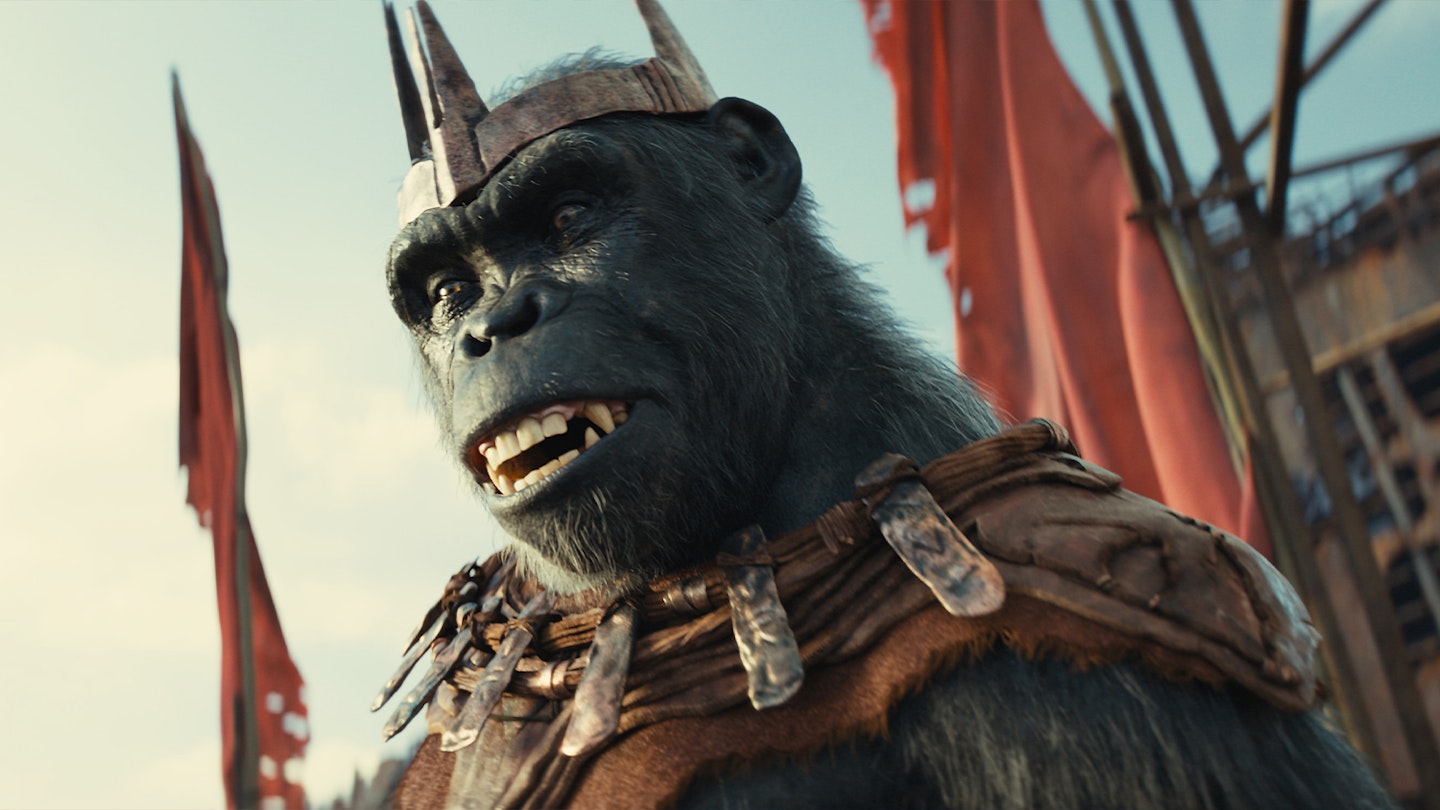
Director Wes Ball bids a definitive farewell to Andy Serkis’ Caesar and picks up the thread “many generations” later, or about 300 years. Perhaps inevitably, opposing groups in this new time period lay claim to Caesar's legacy. Young Noa (Owen Teague) lives peacefully among his tribe, battling a mild father complex and preparing for a rite of passage. But after a mysterious human, Mae, played with unfailing intensity by The Witcher’s Freya Allan, appears nearby, the settlement is attacked by apes from a more martial culture, and Noa must head off to rescue his kidnapped clan.
A thoughtful film about the way the victors rewrite history.
Ball and his team have sensibly decided there's not much point paying for bigger name actors if you're going to bury them in pixels. Aside from Teague, very much a rising star, the biggest name playing an ape here is Kevin Durand, who's having a good year (see also Abigail) but is not as big as Serkis or Toby Kebbell. Any money thus saved has gone on endless photo-realistic scenes of chattering chimps and largely superb VFX, as Noa tries to untangle what’s going on and figure out a way to find and rescue his clan. It's a thoughtful film about the way the victors rewrite history, sometimes in the face of clear evidence to the contrary, and about the clash of developing cultures. But there are also times when you can sense the film holding back exposition, saving up conflicts and characters for the next two instalments.
The film does generally good work in making it clear who's who despite all the fur and teeth, and in showing how Noa’s efforts to understand Mae’s will to survive help him to understand his own people. Durand’s Proximus Caesar, bonobo head of the titular kingdom, appears relatively late in the film but still makes an impact as the ape obsessed with co-opting man-made technology against any remaining “echoes” (humans), but also his fellow apes. Ball thus establishes meaty themes and big potential conflicts for the future, while giving us just enough of an arc here to make this film stand alone.
